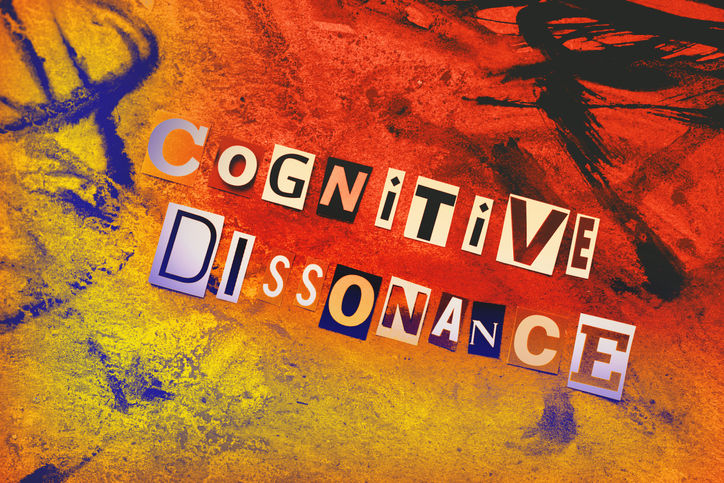Why Trauma Isn’t a Trend – And Why Trauma-Informed Practice Matters More Than Ever
- Richard Johnson

- Aug 9, 2025
- 3 min read

In recent years, the word “trauma” has surged into everyday conversations across wellness, coaching, and even corporate leadership spaces. From social media reels to therapy-lite weekend workshops, trauma is suddenly everywhere. But while increased awareness can be a good thing, this sudden popularity has also come with a cost: the trivialisation of trauma and the rise of quick-fix solutions that can do more harm than good.
At Active Health Group, we’ve been offering trauma-informed training for many years, long before it became a buzzword. For us, trauma-informed practice isn’t just a feature on a course syllabus. It’s a core philosophy, woven into how we teach, support, and train practitioners to work with care, safety, and integrity. As the term "trauma" becomes increasingly commodified, we believe it's time to speak out and clarify what trauma-informed truly means—and why it matters more than ever.
Trauma: More Than a Hashtag
Trauma is not a trend. It’s not simply “stress” or a bad day. Actual trauma - particularly developmental, relational, or complex trauma- affects the very fabric of a person’s identity, nervous system, sense of safety, and capacity to relate to others. While it’s encouraging that more people are becoming open to discussing emotional pain, the tendency to dilute the meaning of trauma can be deeply problematic.
The danger arises when trauma is packaged into bite-sized solutions or marketed as something that can be "cleared" in a single session. This can lead to:
Re-traumatisation, if clients are pushed too far, too fast;
Bypassing, where the emotional and somatic work is skipped in favour of cognitive reframing;
A false sense of resolution, leaving deeper wounds unaddressed;
And an increasing number of under-trained practitioners using trauma language without trauma awareness.
The Rise of the “Quick Fix” Culture
In today’s fast-paced, results-driven world, there’s an understandable desire for immediate relief. Techniques such as tapping, NLP-based modalities, and various hypnotic methods are being presented as magic bullets for trauma resolution. While some of these methods do have merit—and can be helpful in certain contexts—they are often marketed irresponsibly, without the nuance and caution that trauma work demands.
We are now seeing coaches with no clinical training offering trauma healing packages, individuals self-identifying as trauma specialists after attending a weekend workshop, and social media influencers doling out nervous system advice with no understanding of polyvagal theory. This is not only misleading, it is dangerous.
What It Means to Be Trauma-Informed
At AHG, we differentiate between being trauma-aware, trauma-informed, and trauma-responsive.
Trauma-aware means recognising that trauma exists and affects people’s lives.
Trauma-informed goes further: it involves embedding principles of safety, choice, collaboration, trust, and empowerment into all aspects of practice.
Trauma-responsive is the next step: knowing how to work with trauma safely and when to refer out.
True trauma-informed practice involves:
Understanding the neuroscience of trauma, including the impacts on the brain, body, and behaviour;
Recognising the importance of safe relationships and boundaries;
Honouring client autonomy at every step;
Knowing how to create a regulated space for healing;
And being humble and ethical enough to know when not to intervene.
Why Our Approach at AHG Is Different
At Active Health Group, we’ve been teaching trauma-informed skills for many years, long before it became fashionable. Our training is:
Research-informed, drawing on the work of pioneers such as Richard Schwartz, Bessel van der Kolk, Stephen Porges, and Gabor Maté;
Holistic, integrating mind, body, and environmental context;
Ethically grounded, emphasising scope of practice and interprofessional collaboration;
And deeply practical, equipping students with tools that can be used immediately, but responsibly.
Whether you’re training in coaching, massage, nutritional therapy, or health consultancy, trauma-informed awareness enhances every aspect of client care. It builds trust, supports long-term outcomes, and most importantly, helps us avoid inadvertently replicating harm in the name of healing.
Looking Ahead: A Call for Integrity
The widespread interest in trauma is a reflection of a deeper collective need for healing. This is a positive development—but only if we meet it with rigour, compassion, and education.
At AHG, we believe that being trauma-informed is not an optional extra. It is a core competence for anyone working in the helping professions. As we continue to evolve our programmes, we remain committed to leading the way in ethical, embodied, and grounded trauma education.
If you’re ready to move beyond buzzwords and into meaningful, responsible practice, we invite you to explore our training. Because trauma is not a trend—it’s a call to do better.
.png)




Comments